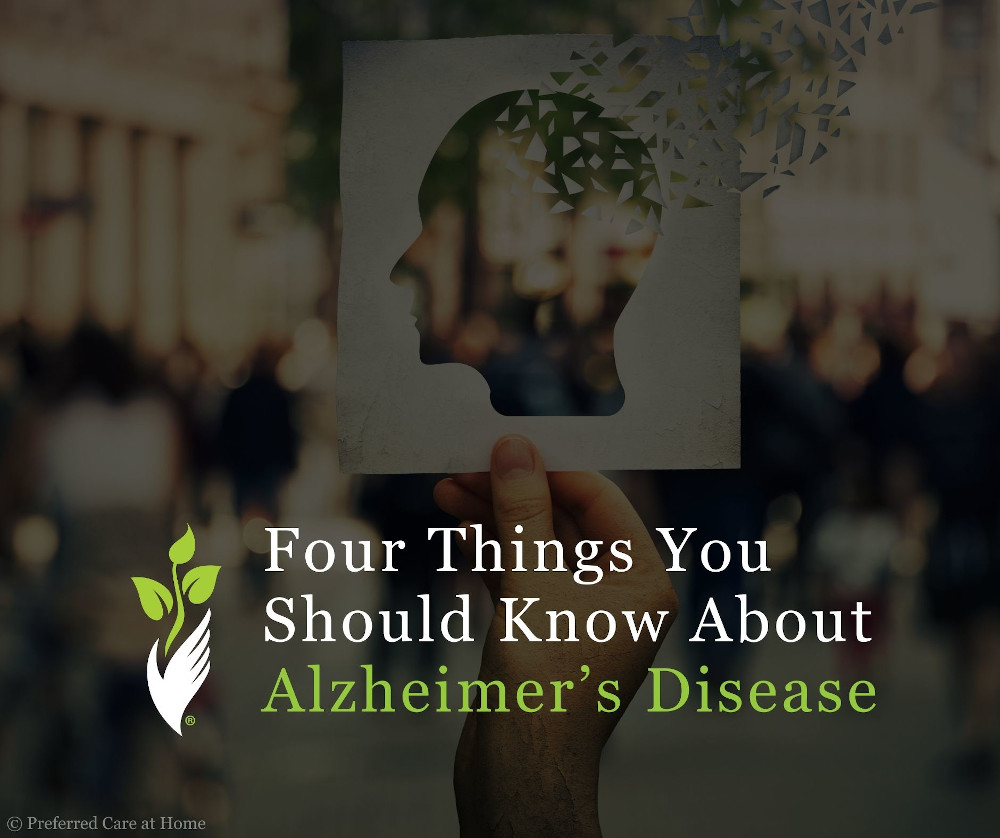Four Things You Should Know About Alzheimer’s Disease
Published June 8, 2021 by R. Bradley Robinson, M.D. in Alzheimer's /Dementia, Senior Health & Wellness

More than 6 million Americans are currently living with Alzheimer’s Disease (AD). Chances are almost all of us know a loved one or friend who has been affected by this neurodegenerative disease. Living with dementia is a tremendous challenge for the affected individual and his or her family. Roughly 11 million Americans provide uncompensated care (a staggering 15.3 billion hours) for loved ones with Alzheimer’s or another dementia.* With this in mind, let’s take a few moments to review 4 things everyone should know about Alzheimer’s Disease.
1. Alzheimer’s is a specific type of dementia.
Not all types of dementia are considered to be Alzheimer’s Disease. Other kinds of dementia include vascular dementia, dementia with Lewy bodies, and frontotemporal dementia. Determining the specific type of dementia is important as some treatments used for slowing the progression of Alzheimer’s would not be effective with other types of dementia.
2. Dementia is not a routine part of aging.
Many people commonly assume that memory loss or significant forgetfulness is a routine part of aging. This is not the case. Of course, while we all may forget where we placed our car keys or forget someone’s name from time to time, dementia involves more significant memory loss that presents significant disruption to one’s daily life. Dementia is not a normal part of aging. If you or a loved one is concerned about the possibility of dementia, you can talk with your doctor about screening tests that may clarify whether the symptoms you are experiencing are due to a type of dementia.
3. Alzheimer’s Disease involves more than memory loss.
While memory loss is an important factor in dementia, individuals may also experience difficulty concentrating on tasks, thinking through daily activities such as following a cookbook recipe, or with the ability to find the right word in certain situations, to name a few. These difficulties can be challenging and frustrating, and contribute to mood changes. Alzheimer’s itself can also cause difficulty in controlling one’s emotions, such as feeling more sad or angry than usual.
4. Alzheimer’s Disease may be treated for symptoms.
While there is currently no cure for Alzheimer’s Disease, it is important to talk with your doctor about possible symptomatic treatment. Most individuals with AD will receive a treatment trial with medicines designed to counter the effects of Alzheimer’s on the brain’s neurotransmitters. While not everyone will respond to this treatment, some may experience benefits with regard to cognition, neuropsychiatric symptoms (such as agitation in the evening, also known as “sundowning”), and with management of activities of daily living.
If you or a loved one is dealing with Alzheimer’s Disease, it’s important to utilize every available resource that you may need. In addition to visiting national organizations such as the Alzheimer’s Association (www.alz.org), check with your local area council on aging for additional resources. And be sure to check out other resources on our blog, some of which are listed below.
“Walking the Last Mile” by Francesca Robinson, MA.
“Alzheimer’s Is Not a Discriminating Disease” by Ashley Luckose, Esq.
“Dementia and Alzheimer’s Care: Meet People Where They Are” by Jane Barton MTS, MASM, CSA.
*Statistics according to the Alzheimer’s Association, available for public review at https://www.alz.org/
If you have questions about senior home
care services or if you want to start care:
Related Posts

January 27, 2025
Is There a Food Allowance Card for Seniors?
Jody Guerrieri, RN.

January 27, 2025
What Causes Glassy Eyes in the Elderly?
Jody Guerrieri, RN.

January 27, 2025
What Age Is Considered a Senior Citizen?
Jody Guerrieri, RN.
Helping seniors age in place, with dignity & grace.